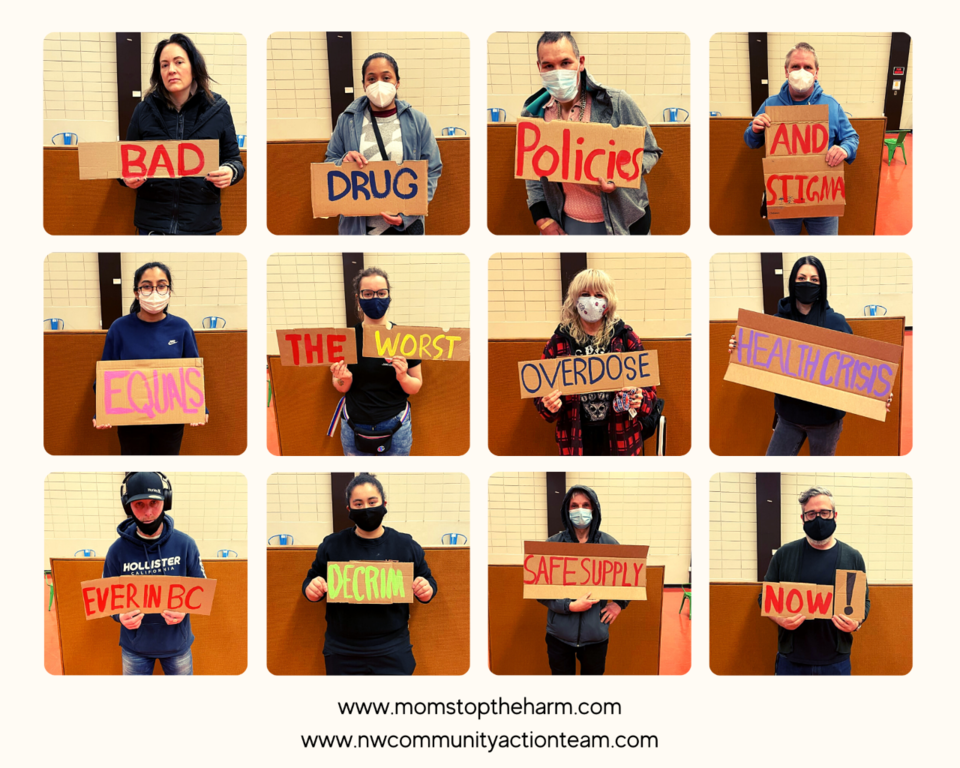A toxic drug supply claimed the lives of five people in New Westminster in January 2022.
Those deaths follow a record-setting year in 2021, when 42 people in New West died of illicit drug deaths. Statistics from the BC Coroners Service show the five deaths recorded in New Westminster in January is equal to the number of people who died of toxic drug deaths in the city in all of 2013 – and the number of deaths has increased every year since.
According to preliminary data released by the BC Coroners Service on Friday, at least 207 British Columbians were lost to toxic illicit drugs in the first month of 2022.
"The new year has started with the loss of 207 more British Columbians to the toxic illicit drug supply in our province," chief coroner Lisa Lapointe said in a news release. "I extend my heartfelt condolences to the many families grieving the loss of a loved one in communities large and small. As we near the six-year anniversary of the declaration of B.C.'s public health emergency into substance-related harms, it is clearer than ever that traditional approaches to substance use are hurting people and costing lives.”
The BC Coroners Service reports that January was the fourth consecutive month in which more than 200 lives were lost to the illicit drug supply in B.C. It also noted that the 207 deaths was the third highest ever recorded in a calendar month and worked out to an average of about 6.7 deaths per day.
While illicit drug toxicity death rates remain high throughout B.C., the coroners service noted there have been notable increases in smaller and medium-sized communities. The 11 recorded deaths in Kamloops in January made it the third most affected township in B.C. behind only Vancouver (48 deaths) and Surrey (22 deaths).
"We know that illicit substances in our province are toxic and that those dependent on them are vulnerable to serious harms and death," Lapointe said. "Ensuring access to safer supply, establishing a substance use system of care, and turning the focus away from punishing and stigmatizing are critical steps to resolving this public health emergency."
According to the coroners service, no deaths have been reported at supervised consumption or drug overdose prevention sites. A safe consumption site opened in downtown New West last year.
Death review panel
Lapointe said she is hopeful that the recent recommendations made by the Coroners Service Drug Toxicity Death Review Panel will support “the meaningful change underway in our province and an end to this tragic crisis."
On March 9, the BC Coroners Service Death Review Panel released a review of illicit drug toxicity deaths. The panel, convened by the BC Coroners Service, is calling for increased access to a safer supply of drugs and the creation of an evidence-based continuum of care to better support substance users and reduce the number of illicit drug-related deaths in B.C.
The recommendations are included in a report examining the circumstances around 6,007 deaths from illicit drug toxicity between Aug. 1, 2017 and July 31, 2021. The death review panel’s report reveals that the primary cause of these deaths was the increasingly toxic and unpredictable illicit drug supply in the province, and that the current drug policy framework of prohibition is forcing substance users to access the unregulated market, leading to increased numbers of substance-related emergencies and deaths.
According to the death review panel, Illicit drug toxicity is now the leading cause of unnatural death in B.C., accounting for more deaths than homicides, suicides, motor vehicle incidents, drownings and fire-related deaths combined.
"This report includes realistic, actionable recommendations that the panel believes will reduce the number of people dying due to toxic, illicit drugs in our province," Michael Egilson, chair of the death review panel, said in a news release. "We recognize that many of the timelines in the report are aggressive, but COVID-19 has demonstrated how swiftly policy-makers can act when lives are at stake – and we know that every month of inaction equates to hundreds more lives lost."
The panel's advice to the chief coroner included three recommendations:
* Ensure a safer drug supply to those at risk of dying from the toxic illicit drug supply.
* Develop a 30/60/90-day illicit drug toxicity action plan with ongoing monitoring.
* Establish an evidence-based continuum of care.
The chief coroner has forwarded each of the panel's recommendations to the relevant provincial ministries and organizations.
Findings reviewed by the panel include: deaths are increasing both in number and in rate; the drug supply has become increasingly toxic; more drug toxicity deaths occur among younger adults – the average age of death is 42; illicit drug toxicity deaths are ranked second after cancers for potential years of life lost; Indigenous Peoples are disproportionately represented in drug toxicity fatalities; individuals living in poverty and with housing instability are more vulnerable; and people with mental health disorders or poor mental health are disproportionately represented.
Follow Theresa McManus on Twitter @TheresaMcManus
Email [email protected]



